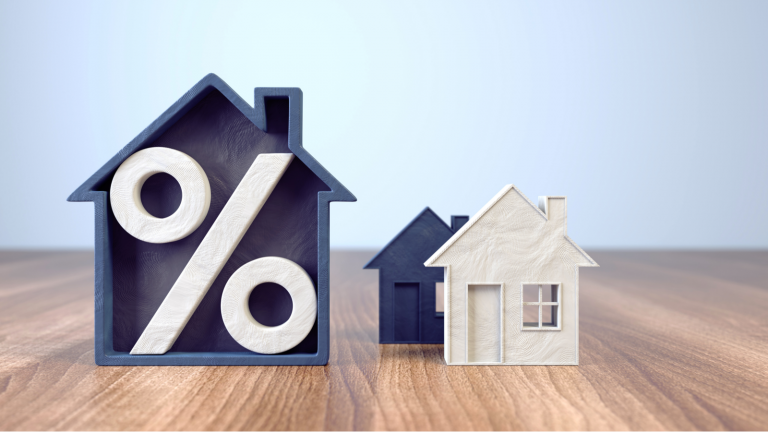If rising home prices weren’t enough, rising mortgage rates have made homeownership an even costlier proposition. According to Bankrate.com, the interest rate on a 30-year fixed mortgage has gone from a national average of 3.77% in February, to 5.54% today.
Worse yet, mortgage rates could keep climbing. Assuming, of course, that the Federal Reserve continues to raise interest rates by 50 basis points (0.5%) per meeting. One hawkish Federal Reserve Governor believes that’s the central bank’s best course of action when it comes to bringing down the currently high rate of inflation.
Atop the spike in housing prices during the pandemic, what does this mean if you’re looking to buy a home today? Expect monthly mortgage costs hundreds of dollars above what they were just a few months before. So, is this a sign it’s better to rent than buy for now? Let’s take a closer look.
What Rising Mortgage Rates Mean for Housing Costs
Rising mortgage rates will increase the housing costs of borrowers. Spiking interest rates usually mean an end to spiking housing prices. Demand is falling fast, signaling that further near-term price appreciation, if any, will be limited.
However, that doesn’t necessarily mean housing costs are coming down. Factors like the chronic shortage of housing in the U.S. could counter falling demand, keeping prices steady. With this, we’ll assume home prices stay constant. For our example, we’ll use the current median sales price for U.S. houses.
Per the St. Louis Federal Reserve’s FRED project, the median sales price for a home in the U.S. is $428,700. Assuming a standard mortgage with a 20% down payment, with the 3.77% interest rate that was average in February 2022, buying a home at this price would’ve cost you around $1,592 per month in principal and interest.
At today’s rates (5.28%), the monthly principal and interest on an average U.S. home would be around $1,900 per month. That’s an extra $308 per month, nearly $3,700 extra per year, an additional $110,880 in interest payments over the life of the mortgage. Rising around 19.4% in a matter of months, mortgage costs have far outpaced even today’s elevated rate of inflation.
Should You Rent or Buy? It Depends.
So, with rising mortgage rates, and the uncertain prospect of whether housing is going to hold steady or sink from here, is it best to rent or buy? Put simply, your mileage will vary. That is, there are a lot of other variables with your personal housing situation that can determine whether renting or buying is the best move today.
For instance, if you’re looking to stay in one place for many years, buying may make sense. Home ownership makes less sense if you intend to move within a short timeframe. Even the National Association of Realtors itself will tell you it takes several years before owning beats renting.
More specifically to the state of today’s housing market, a sharp increase in rents may make buying (if you’re looking to stay put) a worthwhile move. Apartment and home rental prices have soared since the pandemic recovery. In some markets, like Las Vegas, rents are up nearly 25% since 2019.
That said, it’s not a given that rent prices will continue to rise at a rate well above wage growth. It’s possible interest rates from here will rise faster than landlords are able to feasibly raise the rent.
The Takeaway
Unless you opt for riskier financing options like adjustable rate mortgages, there’s little getting around the rising cost of a monthly mortgage. Expect to pay nearly 20% more to buy the average U.S. home today than four months ago.
Obviously, it’s not the most ideal time to become a homeowner. Although the housing market has peaked, it remains largely a seller’s market. Even if housing prices correct from here, it may not mean big time mortgage savings. A continued rise in interest rates could outweigh it.
Nevertheless, this may not mean “forget about it” when it comes to whether it’s best to buy a home today. Again, it all comes down to your own personal circumstances. Not just the interest rate on your mortgage.
The long-term benefits of homeownership could outweigh the spiking upfront costs, including rising mortgage rates.

